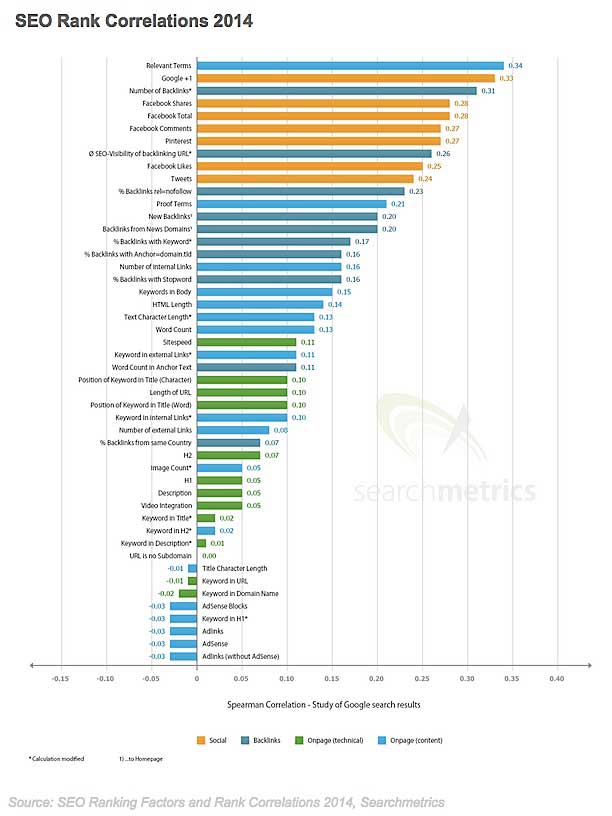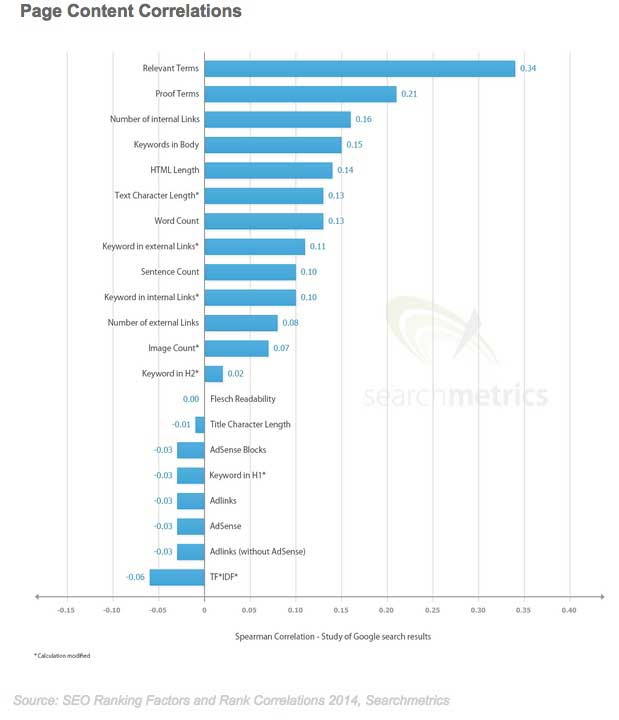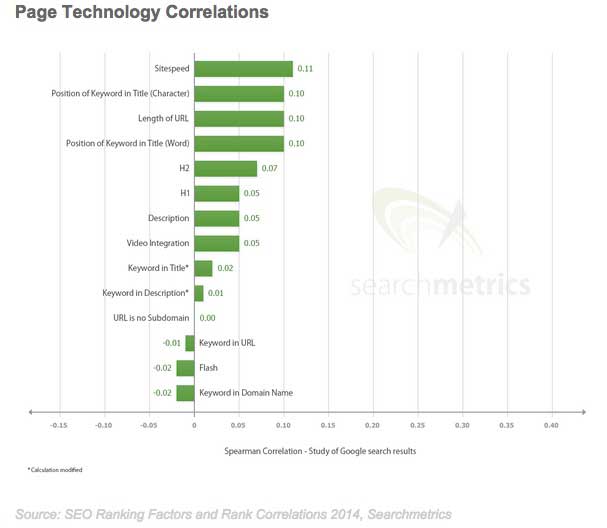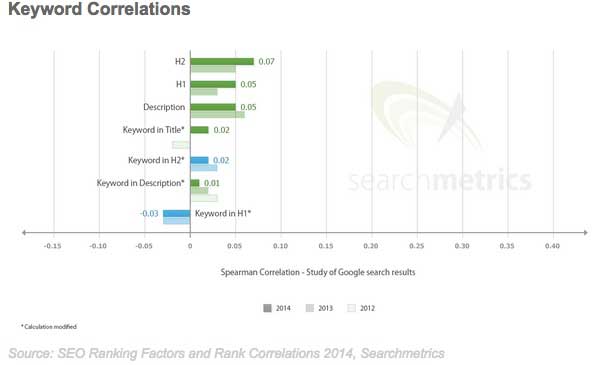To achieve good ranking positions in Google organic search results, publishers need to include high-quality content on pages rather than simply rely on traditional SEO tactics, according to a recent report from Searchmetrics.
Pages that rank well tend to have a number of qualities in common, including comprehensive coverage of topics, easy-to-understand language, more images and videos, and larger word counts, according to the analysis of US Google.com organic search results for 10,000 keywords and 300,000 websites.
However, big brand websites still rank in top positions without having to fulfill many of the criteria that Google seems to require from other sites, the analysis also found.
Overall, the presence of relevant words on a page (i.e., not just an exact match with the search term) has the strongest correlation with positive search rank. Social signals (Google +1s, Facebook shares, Pinterest pins, tweets, etc.) also tend to have very positive impact on search rank, as does the number of backlinks.
Below, additional key findings from the report.
Page Content
Google has been been tying rank on search engine results pages (SERPs) to content quality for years, and the analysis found this trend accelerated significantly with the Hummingbird algorithm update last fall.
With a few exceptions, content factors that Google views as proxies for page depth and quality—such as sentence count—are now more highly correlated with good rankings than they were last year.
Technology/SEO Tactics
Google does not seem to favor pages that meet certain traditional SEO criteria, such as fast load times and short URLs, the analysis found; rather, it is the absence of those criteria that seems have a negative effect on the ranking.
Put another way: The presence of certain factors is now a basic requirement for a ranking well, rather than an advantage over competitors.
Keywords
The presence of keywords in a site's domain/URL has dropped from being positively correlated with search rank in 2012 to now being zero/slightly negatively correlated.
The overuse of keywords in page content also has a negative effect on rankings. As the report puts it: "The days of 'keyword density' are over."
However, keywords do remain positively correlated with search rank in the case of headers, titles, and descriptions. They are also still valued by Google in the page body to help determine subject matter.
About the research: The report was based on an analysis of US Google.com search results for 10,000 keywords and 300,000 websites.








